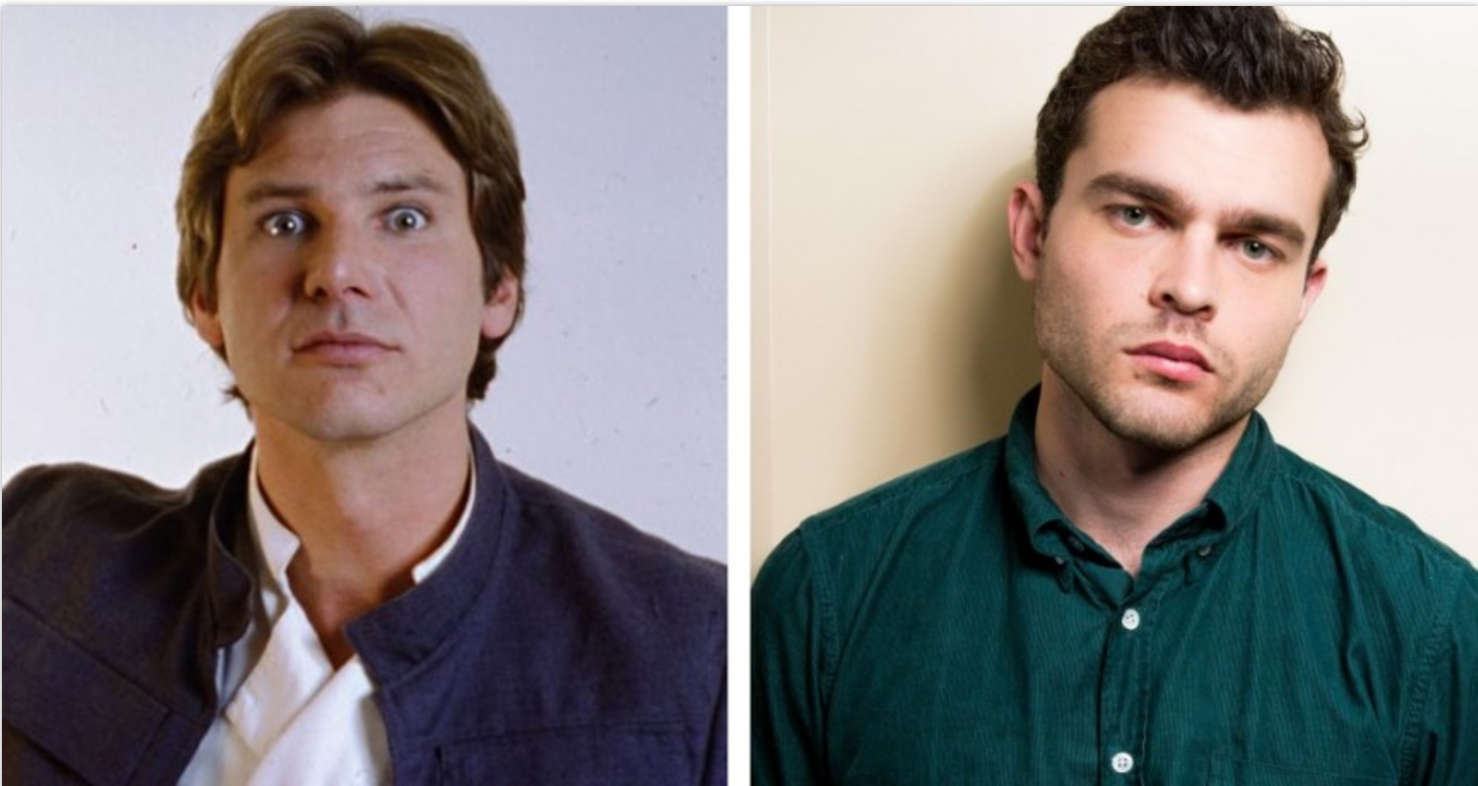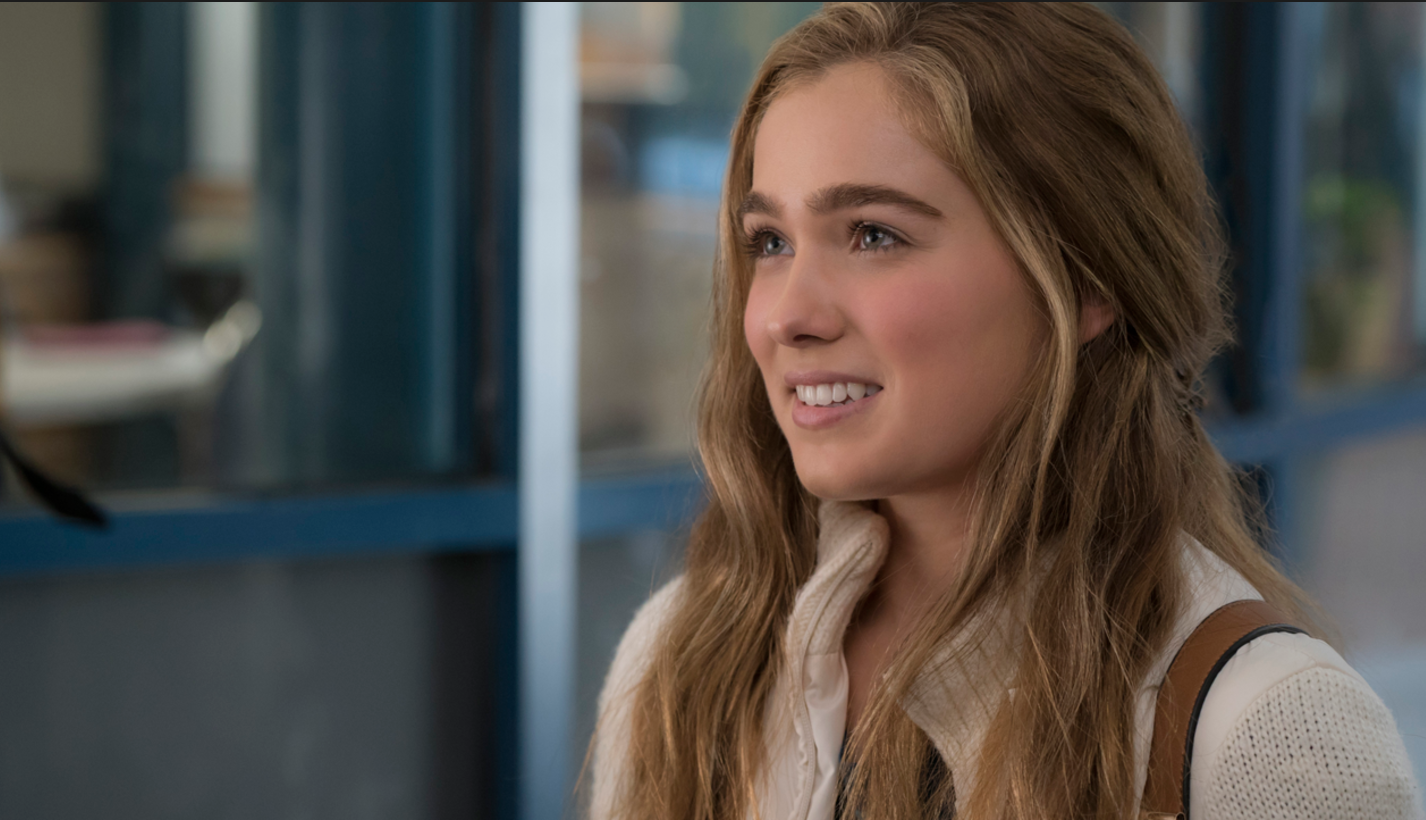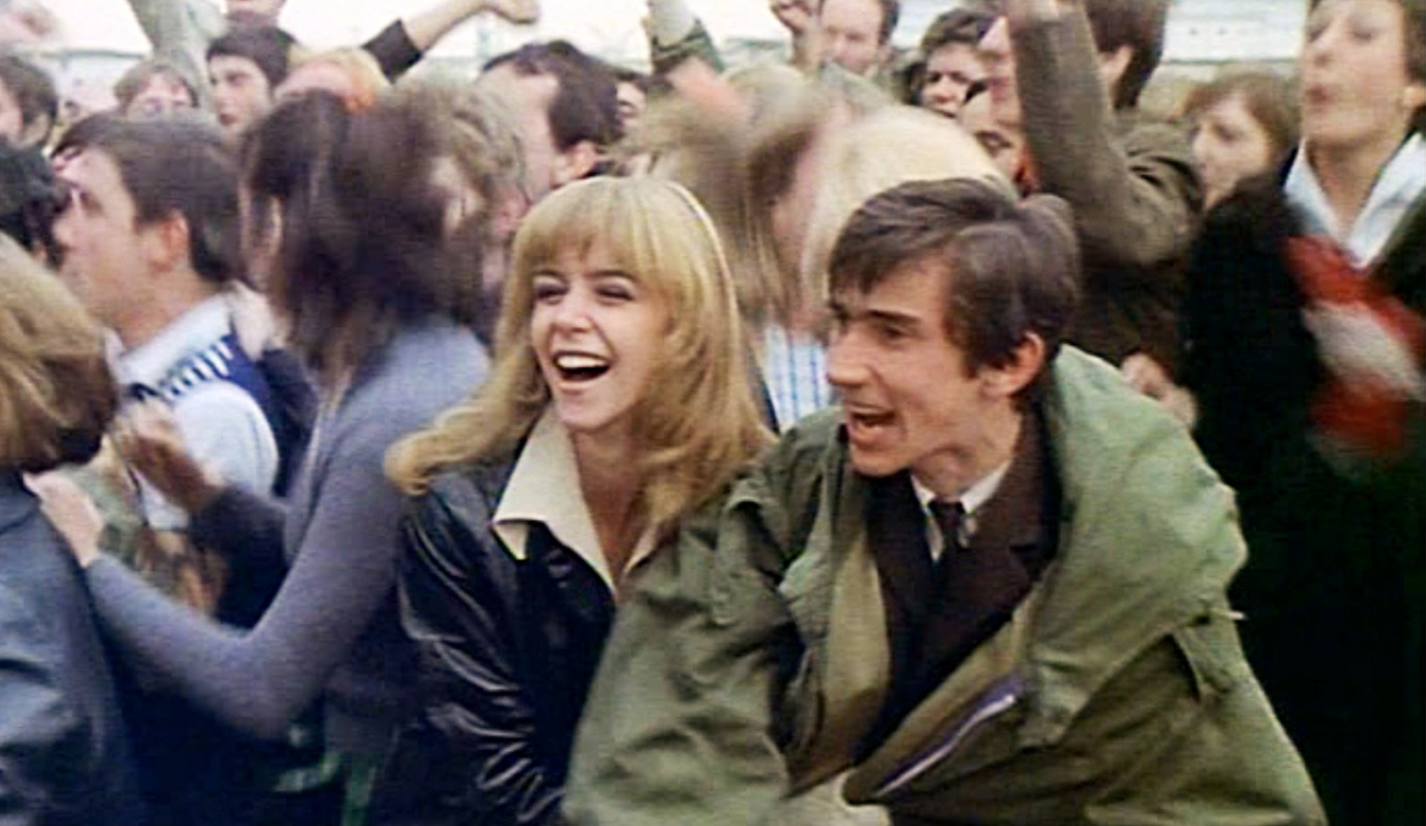Andrew Jay Cohen‘s The House, a Will Ferrell-Amy Poehler comedy about 40ish marrieds running an illegal casino to pay for their daughter’s college costs, opens this Friday (6.30). A Canadian critic friend reports that Warner Bros. has “cancelled” plans for critic screenings, and wants to know if it’s being hidden from U.S. critics as well. I haven’t received an invite to a Los Angeles all-media screening, but I often have to ask to be invited to lowest-common-denominator studio flicks. If anyone knows anything, please advise.
Month: June 2017
Eastwood “Probably” Delivering Terrorist Train Thriller in December
A 6.23 interview with Clint Eastwood in the Carmel Pine Cone, written by Paul Miller, says that Eastwood’s next film, The 15:17 to Paris, will begin filming in August and will “probably be released later this year.” Which indicates a likely December release date. So we may have an Eastwood film in the 2017 Oscar derby, and one sure to be embraced by the same red-state audiences who went apeshit over American Sniper.
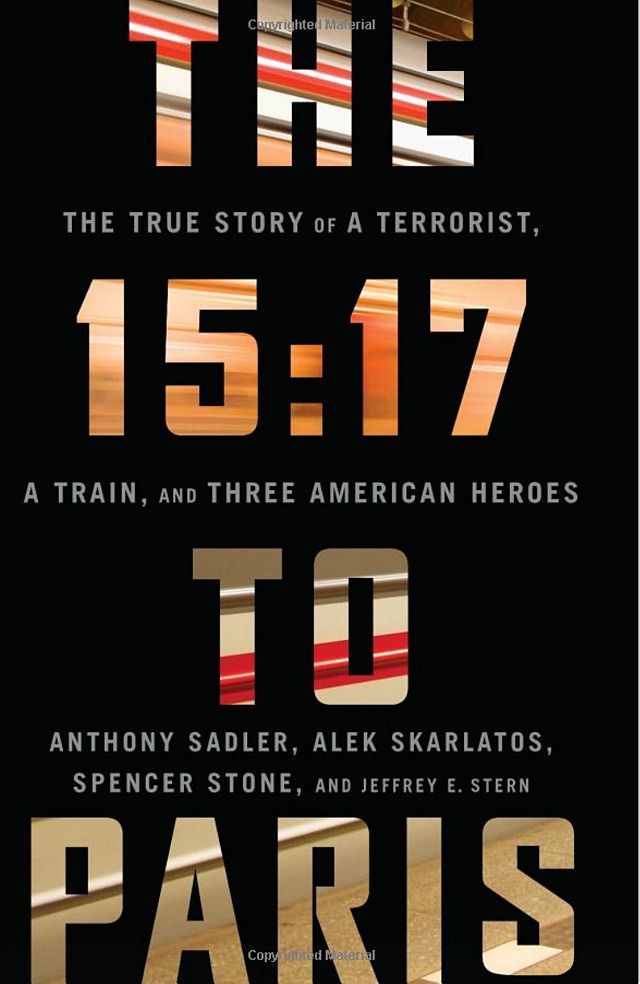
Based on “The 15:17 to Paris: The True Story of a Terrorist, a Train, and Three American Heroes,” a 2016 book by Anthony Sadler, Alek Skarlatos, Spencer Stone and Jeffrey E. Stern, which recounts a true-life episode in which three young guys, one of them a U.S. Air Force enlisted man, stopped an armed terrorist from murdering God-knows-how-many-passengers aboard a Brussels-to-Paris train.
The incident happened in August 2015 — the book popped twelve months later.
Miller excerpt: “At his office on the Warner Bros. lot in Burbank, Eastwood is busy these days refining the shooting schedule, while his casting directors are choosing the actors, costumers are picking the outfits, and set designers are planning the shots — all routine tasks for a major Hollywood picture.
Acting Coach Hired to Boost Aldenreich’s Performance?
From Kim Masters’ 6.26 Hollywood Reporter story about the ongoing Han Solo calamity (“Star Wars Firing Reveals a Disturbance in the Franchise“): “Matters were coming to a head in May as the production moved from London to the Canary Islands. Lucasfilm replaced editor Chris Dickens (Macbeth) with Oscar-winner Pietro Scalia, a veteran of Ridley Scott films including Alien: Covenant and The Martian. And, not entirely satisfied with the performance that the directors were eliciting from Rules Don’t Apply star Alden Ehrenreich, Lucasfilm decided to bring in an acting coach. (Hiring a coach is not unusual; hiring one that late in production is.) Directors Phil Lord and Chris Miller suggested writer-director Maggie Kiley, who had worked with them on 21 Jump Street.”
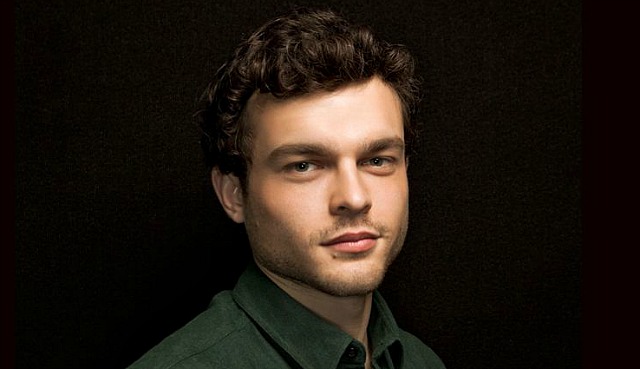
Alden Ehrenreich, the anti-Han Solo.
Did I just read this?
Han Solo producer Kathy Kennedy and her creative consigliere, Lawrence Kasdan, could have chosen anyone to play the brave, reckless, somewhat rascally commander of the Millenium Falcon. How many name-brand 20something actors could have easily slipped into the role, guys with the natural insouciance and underlying gravitas of a young Harrison Ford? More than a few, I’m imagining. They had to choose a guy who could be at least faintly believable as a young Ford, which would have meant conveying a certain Hanitude — a mixture of Anglo Saxon cock-of-the-walk confidence, selfish mercenary cunning and shoulder-shrugging heroism.
And yet they chose a mopey, modestly proportioned, beady-eyed guy with the air of a rabbinical student — Alden Ehrenreich. Say hello, Star Wars fans, to the new Solo — a seemingly joyless, small-shouldered guy who lacks a sense of physical dominance (Aldenreich is five inches shorter than the 6’2″ Ford) and whose stock-in-trade is a kind of glum, screwed-down seriousness. A perfect candidate to play a solemn neurotic in one of Woody Allen‘s New York-based dramedies, but as Han Solo, not so much.
You’ll never guess what happened next. After three-plus months of shooting (early February to early May) or more than halfway through principal, it dawned upon Kennedy and Kasdan that Ehrenreich wasn’t working out like they’d hoped. They were presumably expecting that he’d shed his naturally morose manner and magically morph into a devil-may-care adventurer, but, to Kennedy and Kasdan’s astonishment, this didn’t happen.
“I really don’t get it,” Kasdan might have said to Kennedy. “There was absolutely no reason to presume that a frowning Jewish downhead couldn’t easily assume the manner and moxie of a grinning frat-boy scoundrel type.” To which Kennedy might have responded, “Yes, Larry, I know…it’s quite puzzling.” And so, at the suggestion of Han Solo directors Phil Lord and Chris Miller, they hired an indie-level female director to try and…what? Instruct Ehrenreich on the basics of big-screen machismo? Teach him a few Harrison Ford mannerisms?
Richardson Seems To Be Happening
Excerpt from Geoff Berkshire’s Variety review: “In Kogonada’s Columbus (Sundance Institute, 8.4), the protagonists write, talk, bicker, and dance about an extraordinary collection of modernist structures in the unassuming Midwest town of Columbus, Indiana. The hypnotically paced drama, carried by the serendipitous odd-couple pairing of John Cho and Haley Lu Richardson, is lovely and tender, marking Kogonada as an auteur to watch.”
Sidelight #1: Cho is 45; Richardson is 22. 23 years is a significant gap when you’re looking at a romantic pairing, no? It’s mitigated, yes, by the slim and healthy Cho looking like 35 or so. But remember that a potential romantic relationship between 35 year-old Josh Radnor and 19 year-old Elizabeth Olsen (i.e., a mere 16 years between them) was treated as a dicey thing in Radnor’s Liberal Arts (’12).
Sidelight #2: Richardson (Haley Steinfeld‘s best friend in The Edge of Seventeen) appears to be catching on. I can’t be specific but I’m told she’s being circled by a major director as we speak.
Manson Lamps
It’s relatively rare to run into a bad-guy character who is simultaneously (a) detestable, (b) pathetic and (c) fascinating. David Proval‘s Richie Aprile, who was only around for season #2, was such a character. Whenever he showed up or glared or said something threatening or ominous I always muttered “your attitude is toxic and your scowling is monotonous….find some new material, ya putz.” And yet he was never boring. Characters who are this repulsive turn me off sooner or later, sometimes in a matter of minutes.
Aprile took two bullets in the chest 17 years and three months ago. Okay, on 4.2.00 — near the end of the twelfth episode. The Sopranos ended almost exactly a decade ago, on 6.2.07.
From “You Gonna Cry Now?”, posted on 3.27.13: Richie Aprile was shot by Janice Soprano in “The Knight in White Satin Armour.” Time sure flies along. I dearly love the way Janice’s younger brother enters very cautiously, like an animal approaching sleeping prey, and then strokes his chin when he realizes what’s happened.
I swear to God this series made me feel so at home, like I was sitting in a suburban New Jersey diner somewhere with friends on a Friday evening or Saturday morning. It made me feel wise and comfortable and secure while fully reminding me in each episode of all the plagues and anxieties.
Half Recluse, Half Coward
Five days ago I described Daniel Day Lewis‘s announced retirement as a kind of cowardice. “Abandoning the struggle is a sin,” I wrote. “We’re here only a limited time and then we’re dead, for God’s sake. I understand burnout — it happens — but I don’t respect people who’ve been lucky enough to find a special calling and then just walk away from it.”
Gifted people get to retire under two circumstances — i.e., if they’re in the grip of a fatal disease or in the final stages of old-age dementia. Otherwise retirement is not an honorable option.
Variety‘s Owen Gleiberman has adopted a more charitable view. DDL isn’t a coward — he’s just doing another mercurial hide-out, an extended Frank Sinatra thing.
Day-Lewis “will, at some point, want to act again because that’s such a dominating dimension of who he is,” Gleiberman writes. “Besides, to put it in terms he’d surely disdain: What else is Daniel Day-Lewis going to do? He’s 60 years old, which really is the new 50, and assuming he lives a long and vital life, how could he stay away? My instinct says that his instinct wouldn’t let him.
“It’s easy to imagine Day-Lewis busting out of his retirement in about four years by showing up, seemingly out of nowhere, to portray Big Daddy in a stage production of Cat on a Hot Tin Roof, mounted in some tiny 180-seat theater in Dublin. It would immediately become the hottest ticket in the world. Then, of course, there are the film directors who will likely never stop beckoning.
Brown Acid
The Presidency of John F. Kennedy was far from radiant. He had his shortcomings and hesitations. He wasn’t always the bravest or the wisest. But he was sane and sensible and rhetorically progressive, and if he was around today he would almost certainly regard Donald Trump as a “bullshitter”, as President Obama privately muttered last year, if not worse.
I’m not a JFK sentimentalist, but I am a 21st Century surrealist. Ever since Trump’s election (almost eight months ago) and particularly since he took office I’ve occasionally been shook by this rocked-back feeling, a face-slap realization anchored in ghastly darkness. It’s like agents managed to pour massive amounts of brown acid concentrate into the nation’s water supply, and now even the best of us are enveloped a kind of brown-acid mentality or psychosis.
We are stuck in a kind of quicksand — in the midst of the most grotesquely vile Presidency in the history of this nation, a seeming throwback to the psychotic Roman reign of Caligula.
Which is why this 100th anniversary of JFK tribute reel (posted on 5.24.17) seems so moving and yet strange. There’s no sense from listening to Caroline Kennedy Schlossberg and her kids — Rose, Tatiana and Jack — that the spirit of the JFK era is dead and gone, that the kind of country this used to be isn’t even a memory any more. They seem to actually believe that those old JFK vibes can make some kind of return. Nor is there even an allusion to the fact that the same office occupied by JFK 55 years ago is now occupied not by a Republican or a man who thinks differently than JFK did or would today, but by a stone sociopath — a lying, salivating, pot-bellied beast.
In the early ’70s Tom Wolfe wrote about the cultural “grim slide” that seemed to be happening. He was more right than perhaps even he realized. We have slid right down since. These are the bad times.
Jonah Hill Gets It; Whalebod Ken Doesn’t
Hollywood Elsewhere salutes Jonah Hill on his latest weight loss. That’s it — that’s all I have to say. An image is worth a thousand words. Seriously.
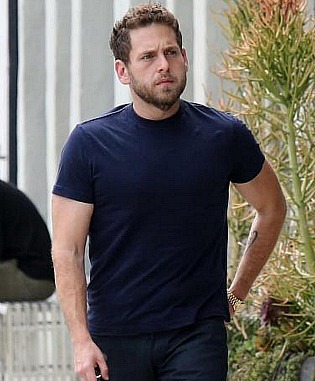
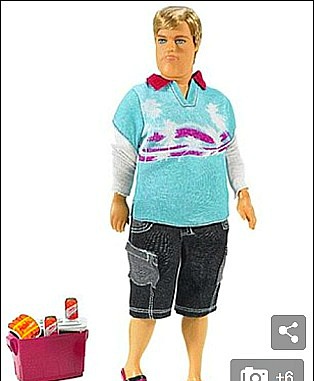
(l.) Re-svelted, slim-again Jonah Hill; (r.) A fat Ken doll as envisioned by fans looking to see a more realistic reflection of the world we live in today.
How Will I Hate Thee, Westworld S2?
A recent, anonymously-written Den of Geek report reminds that Season 2 of HBO and Jonathan Nolan‘s Westworld won’t happen until ’18, and perhaps not until the fall. Take your time, guys! I began as a fascinated viewer — hell, I was nearly a fan — but by the time season #1 ended I had moved beyond concerns about narrative enervation. I was just plain sick of it.
“I hate this series with a passion for just layering on the layers, for plotzing, diddly-fucking, detouring, belly-stabbing, meandering and puzzleboxing to its heart’s content,” I wrote on 12.5.16 (“Westworld Hate Will Continue To Spread”).’
“You know Westworld is just going to be keep being Westworld for God knows how many damn seasons until the beleagured audience, like the hosts, stands up and says “Enough, Jonathan Nolan…you and your never-ending longform sprawl, your endless teasings and knife-stabbings and shallow sex scenes, your slowly-germinating metaphysical character arcs and parallel timelines…you’re just spreading your winding narrative double-back bullshit to see how long you can keep it going…two, three, four seasons. If it weren’t for the nudity we probably would have revolted four or five episodes ago.”
The Den of Geek piece got me thinking in one respect. Through most of Westworld S1 I was wondering when the hell are the robots finally going to revolt and start murdering the guests en masse?
“If one views Nolan’s Westworld as a series to be a long, loose, and convoluted retelling of its 1973 source material’s narrative, then season 1 was essentially the first act,” the piece supposed. “The park was in proper use until it wasn’t. Now, the fences are down, the Tyrannosaurus Rex has a Jeep in its mouth, and Dennis Nedry still hasn’t even reached the Dilophosaurus paddock. Hence, season 2 could quickly evolve into a kind of war between the guests and the hosts.
“It wouldn’t be hard to imagine that 10 episodes in season 2 could stretch out a week of the survivors’ dire circumstances just as liberally as how season 1 stretched out William and Logan’s two-week vacation over nine episodes.”
More stretch-out? If I was a guest looking to survive the slaughter I would get the hell out of the park as soon as possible. How big is Westworld, square-acre-wise? Is it as big as, say, eight Disney Worlds or the city of Winslow? Trust me, it wouldn’t take me any more than a day or two to rescue myself. I would hide behind rocks, travelling only at night, killing as I go. It’s going to be fascinating (not) to watch Nolan shovel the endless meandering bullshit as he endeavors to keep the guests from escaping for weeks on end.
Hotbed of Allah Insanity
On last night’s Real Time with Bill Maher, British activist and former Islamist Maajid Nawaz, whom Maher described as the founder of the “world’s first counter-extremism think tank”, showed up to chat. Nawaz estimated that 23,000 jihadists live in Britain along with 60K-something Islamists, whom Nawaz described as supportive of Jihadism but unwilling to drive cars into crowds of London pedestrians or, you know, blow themselves up or whatever. Again — 23,000 Jihadist nutters in England. I would be disturbed if that number was 2300.
Grief Monkey in Straw Cowboy Hat
Filed by Vanity Fair‘s Richard Lawson on 9.16.16: “Holly Hunter stars as an administrator at a southern university who, still mourning her son seven years after his death, sets off on something of a fact-finding mission to discover what exactly happened to him the night that he died, and how his grad-school business plan for a hot-dog restaurant (yup) ended up in the hands of a school friend, who’s now a successful hot-dog entrepreneur.
“Strange Weather is overwritten, with characters speaking in a stilted, presentational style oddly reminiscent of early Dawson’s Creek. But when it’s good, the script has an admirable frankness — it’s refreshingly not coy about its emotions and intents.
“Hunter is earthy and immediate as a mother whose grief has hardened into a paralyzing, everyday anger — often masked by good cheer and a cigarette, but suddenly erupting out of her with the arrival of new information. Hunter’s road-trip pal is the terrific Carrie Coon, and the two have a lively rapport, particularly in one long, bruising scene in which some old secrets are laid bare. Strange Weather maintains its mellow, southern-slowed vibe even through the most emotional stuff, but by the end the film has crept up and delivered a sudden, unexpected punch.”
Brighton Blitzkreig
Why pay to see a film theatrically when you own a first-rate Bluray of same? Or when an HD version is easily streamable? I’ll tell you why. I don’t know why. Okay, to get out of the house. And, I suppose, to savor well-amplified music.
In the case of Franc Roddam‘s Quadrophenia, which is showing this evening at the Aero, that would be The Who’s “Quadrophenia” album. Which I saw performed by the actual Who, Keith Moon and all, at the L.A. Forum on 11.23.73.
The ultimate reason is that Quadrophenia, a 1979 release that uses the 1964 Mod vs. Rocker mania as a backdrop, is an unqualified masterpiece.
Call me eccentric, but every now and then I feel obliged to pay respect to such films by watching them from the fifth or sixth row with a container of salted popcorn.
I’ve said this two or three times, but the older I’ve gotten the more I’ve come to realize that this film — loosely based on the Who rock opera and basically the story of Jimmy Cooper (Phil Daniels) and his identity, friendship and girlfriend issues — belongs in the near-great category.
“Hands down it delivers one of the craziest, most live-wire recreations of mad generational fervor and ’60s mayhem.” — from a 6.17.12 HE posting.
Excerpts from “Quadrophenia: Jimmy vs. World” by Howard Hampton:
“Quadrophenia is the closest thing England has produced to its own Mean Streets, but its most invigorating aspect is the way it systematically upends expectations. It shares Mean Streets’ dedication to emotional veracity, but its midsixties streets are meaner, more inhospitable — far from the sensual precincts of Little Italy (and from the madding elites of Swinging London).
“Period songs aren’t given Scorsese’s seductive, exhilarating sheen; these kids aren’t all right, and they’re too wired on pills to really take pleasure in anything but human-pinball aggression.
“Using the Who’s heavyweight score primarily in flashes and spurts, for aural color or outbursts of blocked feeling, the film subtly distances itself from its own soundtrack, holding the music at a certain remove.

